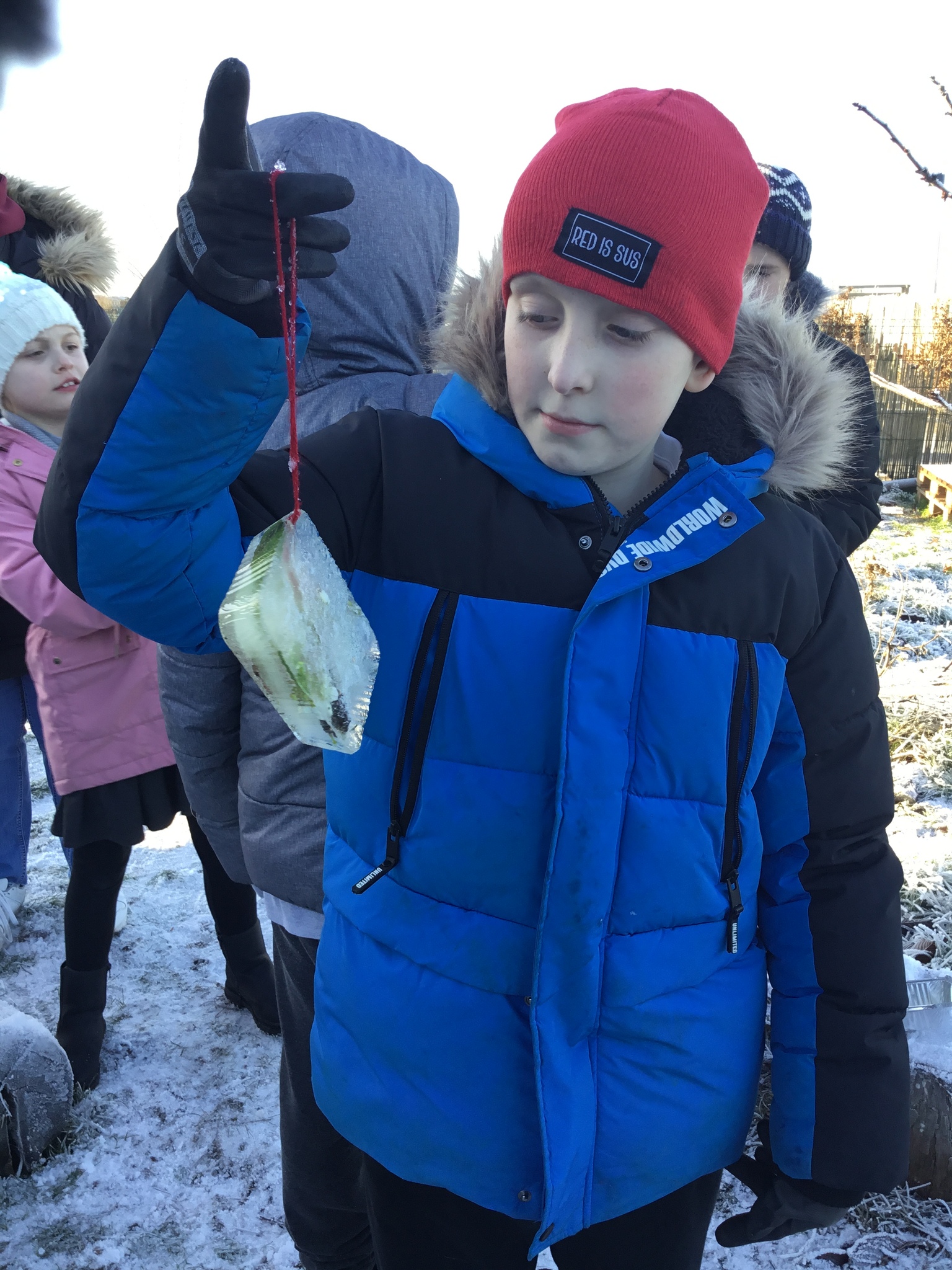Communication and Language
Here at Highfield we work closely with the NHS speech and language therapists to deliver programmes identified for students with difficulties in speech, language and communication. We employ a total communication approach with a varied menu of interventions and approaches to promote effective communication. Take a look at the guides below which show our communication approaches across each of our pathways.
Communication Across the Pathways
We are working with students using assistive technology to promote communication. Take a look at this young lady who is progressing brilliantly with her communication using a communication device.
Physiotherapy and Occupational Therapy - Therapies

We have direct access to Physiotherapists and Occupational Therapists who work with staff to implement and monitor students development. Where appropriate these professionals come directly into school to work with students or train our staff to deliver daily and weekly programmes. Occupational Therapists also assist with any specialist adaptations a student may require.
TEACCH - Teaching Approach
TEACCH is a structured work base and visual approach used for students on the Autistic Spectrum. The primary aim of the TEACCH programme is to help to prepare people with Autism to live or work more effectively at home, at school and in the community. Special emphasis is placed on helping people with autism and their families live together more effectively by reducing or removing 'autistic behaviours'. More information about TEACCH can be found on the National Autistic Society website by clicking here.
Here at Highfield Littleport we have a specialist TEACCH TA who develops programmes and supports the delivery of TEACCH for students whom it is appropriate for. We have a specialist TEACCH base where students learn independent skills with the reinforcement of visual strategies. This approach is not suitable for every learner however our approach is tailored to each individual.
Lego Based Therapy - Intervention

Our TEACCH TA delivers some small Lego Based Therapy groups to promote efficient sequencing, communication and team work.
This therapy is a social development programme which helps children and young people with Autism and related social communication difficulties. The programme is based on the highly structured, systematic and predictable nature of brick building play which makes it appealing to children with social communication difficulties who are particularly attracted to systems.
Much more than simply playing with all major brick building brands, the intervention includes the presence of a supporting adult who guides the children and encourages them to address and resolve their problems. Children can learn to communicate with others, express their feelings, change their behaviour, develop problem-solving skills and develop a relationship with the world around them.
Attention Autism - Teaching Approach & Intervention
Attention Autism is an intervention model designed by Gina Davies, Specialist Speech and Language Therapist. It aims to develop natural and spontaneous communication through the use of visually based and highly motivating activities. Gina’s primary objective is that the sessions are fun and “offer an irresistible invitation to learn”!
Aims of Attention Autism
- To engage attention
- To improve joint attention
- To develop shared enjoyment in group activities
- To increase attention in adult-led activities
- To encourage spontaneous interaction in a natural group setting
- To increase non-verbal and verbal communication through commenting
- To build a wealth and depth of vocabulary
- To have fun!
The intervention is not strictly limited to students with Autism although the name lends itself to this. It is related to any student with the needs above.
Stages of Attention Autism
The Attention Autism programme progresses through a series of stages, building on each skill level. Each new stage is introduced when the group is ready to expand attention skills.
STAGE 1 - FOCUSING ATTENTION
A bucket is filled with visually engaging objects and toys, aiming to gain the shared attention of the group. The adult leader shows each item to the group and uses simple repetitive vocabulary to comment on the various objects.
STAGE 2 - ATTENTION BUILDING
Visually stimulating activities are shown to the group by the adult leader, aiming to sustain attention for a longer period. The activities are fun, visually engaging and can often involve delightful mess!
STAGE 3 - TURN TAKING AND RE ENGAGING ATTENTION
The adult leader demonstrates a simple activity, often modelled with another adult in the group. Some children are then invited to have a turn but only if they are comfortable to do so. Not every child in the group will get a turn, which then teaches important emotional regulation skills, as well as the essential skills of waiting, turn-taking and learning through modelling.
STAGE 4 - SHIFTING AND RE ENGAGING ATTENTION
Stage 4 aims to develop the skill of engaging and shifting attention. The adult leader demonstrates a simple creative task, and then gives each child an individual kit to copy the task. The children take their kits to a table, complete the task independently, and then everyone returns to the group to show their completed tasks.
More complex skills can be introduced as confidence and social skills develop e.g. sharing materials, working with a partner, problem solving.
Attention Autism principles can then be generalised to curriculum activities (e.g. literacy and numeracy) to facilitate learning and skill development.
At Highfield Littleport the intervention is used in many of the EYFS classes as well as those students following the Blue and Green pathways. Only trained staff deliver this intervention and our Communication TA and Autism Lead coordinates the intervention at school.
Talking Partners - Intervention

This is a programme designed to improve the way children communicate across the curriculum, enabling them to be independent and skillful speakers and listeners. It is delivered to students on a referral basis and is run by our specialist Communication Teaching Assistant who is trained in ELKLAN and delivering the intervention.
Music Therapy
Music therapy is a psychological therapy that provides opportunities for self-expression and social interaction using a medium other than words. It is based on the principle that we all respond to music, regardless of disability or illness. Evidence shows that many people with special needs, such as autism spectrum disorder, have a special affinity to music due to the way in which they perceive and process sound.
Music therapy is child-centred and child-led. As such, aims of music therapy are tailored to the needs of the individual pupil. Although the primary medium used is music, music therapy supports largely non-musical aims. These may include:
· Interaction
· Communication
· Awareness of self and others
· Attention and concentration
· Social skills e.g. eye contact, listening, turn-taking
· Use of the voice
· Self-expression
· Time to reflect/ process
· Self-esteem
· Sensory processing
· Gross and fine motor skills
In music therapy sessions, pupils have access to a wide range of percussion instruments that they are free to explore. The music therapist builds a relationship with the pupil by ‘joining in’ and supporting their music, either by improvising or using familiar songs such as nursery rhymes.
Music therapists are health care professionals registered with the Health Care Professions Council (HCPC).
For further information on music therapy in general, please refer to the British Association for Music Therapy at www.bamt.org.
Emotional Literacy Support (ELSA)
The ELSA (Emotional Literacy Support Assistant) intervention was originally developed within Southampton, then Hampshire, by Sheila Burton, Educational Psychologist. It was designed to build the capacity of schools to support the emotional needs of their pupils from within their own resources. This is achieved by training teaching assistants to develop and deliver individualised support programmes to meet the emotional needs of children and teenagers in their care. It recognises that children learn better and are happier in school if their emotional needs are also addressed. This intervention is now widely implemented by educational psychologists across Britain.
ELSA is an initiative developed and supported by educational psychologists, who apply their professional knowledge of children’s social and emotional development to areas of need experienced by pupils. They provide on-going professional supervision to help maintain high quality in the work undertaken by ELSAs, thereby helping to ensure safe practice for ELSAs and pupils alike. We have two trained ELSA's supporting our learners on a referral basis at Highfield Littleport. We are also working on ensuring therapeutic practice is embedded throughout the school using ELSA principles.
Outdoor Learning
Students take part in a variety of activities and value outdoor learning. There is an intervention group, various opportunities to embed outdoor learning in the curriculum as well as Forest School Sessions. Take a look at how this is delivered here.
What else?!
We have a number of additional extra curricular activities that really do make our provision special here at Highfield Littleport Academy.
- Each week we visit the community to enhance community cohesion and develop the social skills of our students.
- We have a yearly residential trip where our students get to participate in lots of outdoor and adventurous activities and develop their independence and self help skills in a different environment.
- Every class will have a lesson on outdoor learning each week. We also have trained forest school leaders to share technical skills and approaches.
- Every week we have a visiting Emotional Support Dog who comes into school to develop communication and interaction with our students.
- Fantastic drumming and drum fit activities - take a look at our video here
- Students within the Yellow Pathway in Key Stage 3 volunteer at the local food bank developing their own work based learning and social skills
- Joint community opportunities with local Littleport organisations to develop social and creative skills
- Students work serving and preparing drinks at a local cafe developing their social skills and preparing them for the world of work.
- Our students have formulated their own wellbeing group to support the emotional and social health of all at school. This is called Mighty Minds.
- Students attend a weekly Riding for the Disabled session at North Angle Farm in Soham. Here they develop physical skills, communication and social skills.

- Students participate in an annual Christingle service at the local church.
- We take part in specialist sports days both inside and outside of school.
- Student led Summer and Christmas Fairs to fundraise for the school and other nominated charities.
